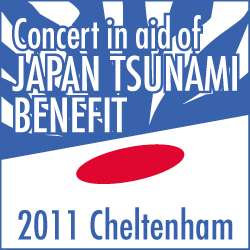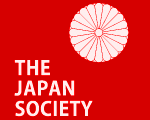Thank you very much for your support.
We raised £1384.66 for the Japan Tsunami victims.
It has been sent to Japan Society Tohoku Earthquake Relief Fund.

1st half
a lot of classical guitar music
- solo and duo; classical, contemporary and Japanese flavour!
PLUS violin and flute.
*******
Interval
Time for refreshments!
Enjoy real HOME-MADE CAKES with tea, coffee or wine.
Authentic Japanese Green tea is available.
*******
2nd half
Drum Solo
Evelyne will intoxicate you with songs by Edith Piaf.
The funds raised in this concert will go to Japan Society Tohoku Earthquake Relief Fund which will channel all donations received to the on-going work of voluntary and community organisations working in the most affected prefectures.
There are still thousands people who have been forced from their homes and leading inconvenient and uncomfortable lives in evacuation centres. We believe that this immense disaster requires long-term support to rebuild and restore their normal life.
On Friday 11 March 2011, the earthquake and tsunami
left a massive scar on the face of Japan
Over 14,998 people died, 9,761 are missing and 114,675 people are still living in utterly uncomfortable evacuation centres (as of 12 May 2011).
The problems caused by prolonged evacuation
When this major catastrophe occurred, however short or long, the residents in the affected areas were forced into a life in evacuation centres through necessity. Right after the disaster, the primary purpose of the authorities was to ensure safety and security. Therefore, life in an evacuation centre was not to be made a problem.
But when evacuation is prolonged, various problems begin to arise. Not only those related to personal toilet, hygiene or food, but, also rather more serious ones: those of privacy. In evacuation centres, there are not only the victims of the tsunami but staff from public administration, volunteers and so on, helping the afflicted. The conditions of sharing with strangers in such intimacy make for a very stressful life.
The weak generated in evacuation life
In evacuation centres, young mothers who were caring for their baby, and women who have their period, can be in the most vulnerable position. There is no space specially designated for mothers to breast-feed in seclusion and privacy. Babies cry without regard for the time of day or night.
Also, as there is no way of shielding women from view, many of them are forced to go to narrow, crowded toilets to get changed. This causes a long queue, and women who are on period can’t get into the toilet easily.
There are some people who go to work from the evacuation centre. Obviously they they get tired at work, but when they return “home”, there is nowhere for them to rest. The available space per person in an evacuation centre is minimal-just enough to lie down and enough room to house two cases for clothes. One of the most common problems in such a cramped living space is snoring. It becomes the cause of friction even among members of the same family. Imagine how high the stress is if it is a stranger’s snoring in a situation in which privacy is not available! There are a lot of people who can not sleep at night and suffer harm to their health as a result.
Difficulty of privacy
Everyone can become vulnerable in conditions of prolonged evacuation. There were proposals to use paper partitions and cot beds made by some cardboard manufacturers, but, unfortunately, not enough of them were ready and available. This gave a rise to feelings of unhappiness in those who did have these partitions: because there were others who didn't have any.
Fighting against feelings of desperation
Victims are already distressed by this catastrophe. For those who lost all life infrastructures: house, furniture, appliances, car, etc., even if they want to earn money to regain their life, businesses around them have collapsed. There were lots of farmers in North Japan; most of whose farms were swept away. There are those who are still suffering deep emotional trauma and can’t bring themselves to work again. It is not easy to get a job. Furthermore, in Tohoku region, the over-64s make up almost a third of the population. Two-thirds of the 11,000-plus victims identified were aged 60 and over. They are not able to work.
For evacuees, the fact that there is no indication of how long this situation will last, is increasing their distress and mental anguish.
We believe that grassroots organisations, working with their local stakeholders, are best equipped to deliver long-term support through activities for which they themselves identify the need. The funds raised will be directed to appropriate organisations on the ground for maximum impact.



 print map!
print map!